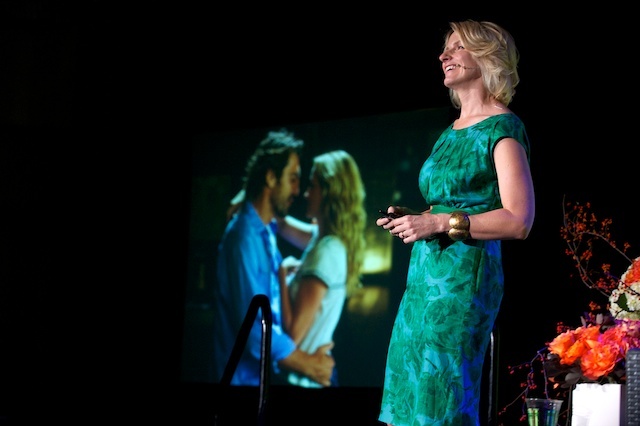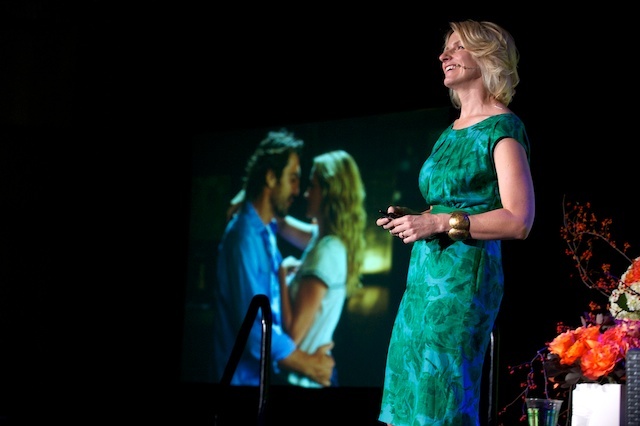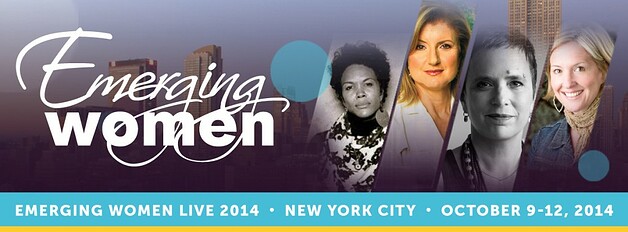Elizabeth Gilbert is the beloved author of the 2006 runaway bestseller Eat, Pray, Love, which has sold more than 10 million copies worldwide. At the time of this interview, her TED talk on creativity has over 8 million views, and her latest novel, The Signature of All Things, has been celebrated as “the novel of a lifetime” by O Magazine. Liz was a featured presenter at the 2013 Emerging Women Live Conference, and the following is a transcript of the conversation we had just before that event.
Chantal Pierrat: There’s a lot of places that we’ll probably end up going today, but I wanted to start with your book since it’s sitting here right in my hands. You were so kind to send me an unproofed copy. I’ve had a chance to dig in a little bit, and I have to say, it’s kind of a page-turner.
Elizabeth Gilbert: Oh, I’m so glad it’s making you turn the pages. That’s what I want. I want you to sprain your wrist turning pages with this book. [Laughs]
CP: Yes, I’m definitely falling down the rabbit hole. But it’s interesting—I’ve not read your fiction. I’ve read, obviously, Eat, Pray, Love, which had such a big effect on me. I’m curious to hear more about how this process was for you, not really writing about yourself. In the last two books, you’ve been writing memoir style. How did this feel?
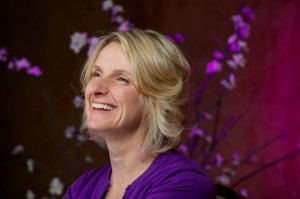 EG: Well, it felt like a homecoming. That would be the word that I would use, that popped into my mind. It’s true, you’re not the only person who hasn’t read my fiction! [Laughs] I started out as a writer of fiction many years ago, and the only thing I ever wanted to be my whole life, my only dream as a writer, was to write short stories and novels.
EG: Well, it felt like a homecoming. That would be the word that I would use, that popped into my mind. It’s true, you’re not the only person who hasn’t read my fiction! [Laughs] I started out as a writer of fiction many years ago, and the only thing I ever wanted to be my whole life, my only dream as a writer, was to write short stories and novels.
So my first book was a collection of short stories and my second book was a novel. I was well on that path, and then my life fell apart, as anybody who’s got $10 to buy a paperback of Eat, Pray, Love knows. And I ended up veering very sharply into this world of confessional memoirs that, of course, I do not regret having done at all. It’s been an extraordinary encounter with myself and with readers. It’s just been an amazing phenomenon.
And then after that came Committed, the follow-up, but 12 years had passed and I hadn’t written a word of fiction. And I just had that feeling that we get sometimes in our lives where I felt like, “If I drift any further away from this essential part of myself, I will never uncover it again. It’s time.”
“If I drift any further away from this essential part of myself, I will never uncover it again. It’s time.”
And also, the luxury appointed to me by the success of Eat, Pray, Love was I could do something as whimsical as take three, four years out of my life to do a passionate study of 19th-century botany and write a novel about 19th-century botanical exploration. So the book is also kind of a celebration of this place I am in my life right now where I have the time to pursue my creativity as I’ve always wanted to.
CP: So the main character is this brilliant young woman named Alma, and she’s developing for me still because I’m still in the early part. But I do think of you when I see her, and I don’t know if it’s just because I’m looking for you.
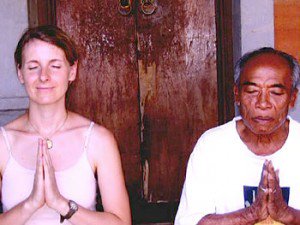 EG: Of course I’m there, and I think my readers will find me all over the book. It’s definitely a continuation of my passion. It’s a book about passion and it’s a book about travel and about discovery of the self, the discovery of the world, and discovery of the self in the world. Those are my themes that I’ve been looking at for a long time in a lot of different ways.
EG: Of course I’m there, and I think my readers will find me all over the book. It’s definitely a continuation of my passion. It’s a book about passion and it’s a book about travel and about discovery of the self, the discovery of the world, and discovery of the self in the world. Those are my themes that I’ve been looking at for a long time in a lot of different ways.
Alma is—the thing I love most about her is that she’s driven by a huge, towering lust for knowledge and for learning. Certainly in that, we are familiar. I really wanted to write a book about a woman whose life is directed by a craving to learn. I feel like that’s a character who we just don’t see enough in literature. And it’s somebody who I feel like I know, and somebody I feel like I am, and somebody who I think a lot of us feel like we are.
“I really wanted to write a book about a woman whose life is directed by a craving to learn. I feel like that’s a character who we just don’t see enough in literature.”
CP: So The Signature of All Things—I’m curious how you came upon that title.
EG: The “signature of all things” is actually a theory that was posited in the 16th century by a quite eccentric German mystic, who’s also a plant enthusiast, named Jakob Boehme, who came to believe that God had hidden in the design of every plant on earth a clue as to the meaning and use of that plant. So, for instance, the simple way to describe would be that walnuts, if you open them up, they look like a brain, and walnuts are very good for headaches. And then sage leaves are shaped exactly like the human liver, and sage is very good for liver aliments.
So it was this idea, this compassionate gardener—God—wanted people to find their way to the clues hidden in the plants that would benefit us. It’s a lovely, kind of medieval mystical theory and it was well, well out of date by the time my characters in my book come along. There’s a lot of holes. [Laughs] A lot of leaves look like livers, and if you ate many of them, you would die.
You know, it’s one of those theories where he came up with a theory and tried to make the science fit to it. And my book is sort of about the opposite. My character is a real scientist who studies the world and deducts her theories after her study. However, she does fall in love with a man who still believes in that theory who’s also a botanist.
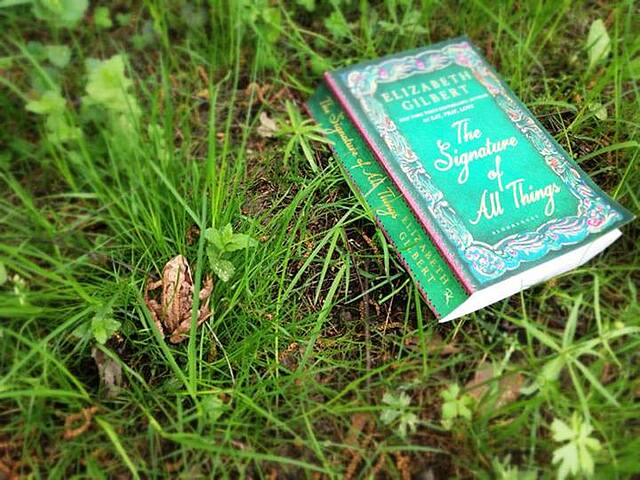 Liz’s fans send her pictures of their copy of SOAT from around the world.
Liz’s fans send her pictures of their copy of SOAT from around the world.
And in a way, every single character in the book, all of them revolving around the world of plants, they’re all looking for the signature of all things in some different way, whether it’s scientifically or artistically or in the world of commerce. They’re trying to find the clues in the plant world to better their own life.
CP: What I love is that you are a great connector. You take us on a tangent, and yet it comes back around really beautifully to another piece. It’s not a hanging thread. It always ties back.
EG: Yes. Without a doubt. Thank you for saying that because I feel like the novels that I love—and I do love 19th-century novels. I love Jane Austen and Dickens and Trollope and Elliot. That whole gang, they’re my favorite. And I think that the mastery that they had is that they knew exactly, from the first minute of the story, where they were going and where they were taking you. And you know when you’re in their hands that you’re not going to get abandoned on the side of the road, which sometimes happens in contemporary novels where you’re like, “How’d we get here? I’m stuck here now!” [Laughs] “And I don’t think either me or the author has any idea where we’re going.”
So I wanted to have that same sense of leading the reader on a journey and saying, “It’s OK, you can trust me. We’re going to go on this together and we’re going to come back on the other side and we’re going to have a really amazing experience in the middle.” I’m hoping that’s what the book will convey.
“It’s OK, you can trust me. We’re going to go on this together and we’re going to come back on the other side and we’re going to have a really amazing experience in the middle.”
CP: Do you feel that, in your own life, you have that same sort of philosophy as you do in your writing style, where you trust everything actually does have a purpose and will cycle back?
EG: I do! [Laughs] I do. And it is magical thinking, right? Cynics and realists of all stripes would object to that idea, but it also does seem to be the case. It’s been shown now, even in scientific and sociological studies, that the people who are the most resilient and the people who seem to have lives of the richest quality are the ones who believe that there is some sort of a purpose to their life.
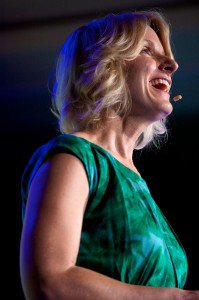 And I do think it’s kind of your job, if you’re lucky enough to have shown up in this world, to figure out what your purpose is. What are we doing otherwise, right? We’re just waiting. We’re just killing time. And from earliest consciousness, I just didn’t want to live in a waiting room. And in that regard, I’m very much like Alma, my character, as well. She’s definitely a purposeful young woman who, you will see, becomes a very purposeful middle-aged woman and an extremely purposeful old woman.
And I do think it’s kind of your job, if you’re lucky enough to have shown up in this world, to figure out what your purpose is. What are we doing otherwise, right? We’re just waiting. We’re just killing time. And from earliest consciousness, I just didn’t want to live in a waiting room. And in that regard, I’m very much like Alma, my character, as well. She’s definitely a purposeful young woman who, you will see, becomes a very purposeful middle-aged woman and an extremely purposeful old woman.
CP: So the tangents that life takes us on—it’s a dance between creating your own purpose and letting it unfold and believing in the seemingly randomness of it. You want both
EG: Yes. When people have asked me if I believe in destiny, I absolutely do, but I think that destiny is a kind of contract between human beings and the Mystery—whatever you want to call “the Mystery” with a capital “M.” I just call it “the Mystery” because it’s easier. And the Mystery entails everything that happens in our lives. And I feel like destiny is sort of an open questions. Things are put before you, offers are made, situations occur, and then you sort of decide what’s going to be made of it.
Somebody asked me the other day if I felt like my husband and I, if our love story was destined. And I said, “No, I don’t think our love story was destined. I think our meeting was destined. We certainly could have blown it.” [Laughs] The invitation was presented, and then it was turned over to our care, and what came next was up to us. But we could have easily walked away from it.
And I’ve been in situations before, in love and in work and in relationships, where an offering is there, and for whatever reason, the participants are unable or unwilling to see through it and it goes away. I don’t think destiny can force you to do something that you’re not going to do.
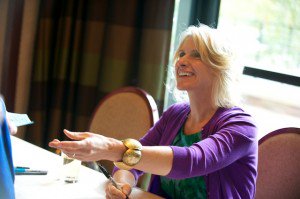 CP: You have an incredible attention to detail. Robert Penn Warren is one of my favorite writers in this regard, and this book reminds me a little bit of that.
CP: You have an incredible attention to detail. Robert Penn Warren is one of my favorite writers in this regard, and this book reminds me a little bit of that.
CP: It has that same sort of—it’s like time stops and there’s a micro focus. And yet, I always think, “Wow, Elizabeth Gilbert, she’s got such big vision.” It seems like you have a pretty good balance of those two things going on. I’m wondering if that’s ever a struggle for you.
EG: You know, I love that idea, thank you for pointing it out. I think that the big picture is in the details. And it’s not an accident that my character, Alma Whittaker, who’s a botanist, finds her way in the world through studying mosses, which are incredibly tiny and incredibly intricate and which have been largely overlooked.
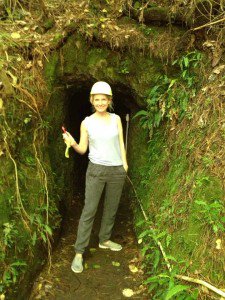 Liz Gilbert in Wellington NZ (via her Facebook page)
Liz Gilbert in Wellington NZ (via her Facebook page)
And as a woman trying to make a name for herself in the botanical world, she discovers that there’s this huge universe right underfoot that everybody is literally stomping on. And that all the bigger botanists have made their name with bigger plants and flowers—you know, the orchidists and the people who study the great redwoods. But she can’t travel to those places. She doesn’t have that luxury to be able to take on those mega-floras.
But right in her backyard, there are probably 45 different varieties of moss growing on one boulder cropping, and she’s able to find an entire universe in that moss. And she’s actually able to ask the same giant questions about the origins of life itself through the study of these few boulders as the great men of her day are asking through the study of the cosmos and through evolution and through fossil records that they’re finding.
So all the answers are everywhere. It’s just that they’re in miniature for her because that sort of suits her life. And I also thought that was a big metaphor for women’s lives in general. I think for most of history, women have lived very rich, miniaturized lives. When you look at the artwork that women have done in Western civilization, it tends to be tiny. It’s needlework or it’s painting tea cups, it’s textiles, it’s tiny knots. Because women’s lives had been kind of compressed, unfortunately, into a smaller scale, and yet women bring their creativity to that small scale and make magnificent things on that scale.
“Women’s lives had been kind of compressed, unfortunately, into a smaller scale, and yet women bring their creativity to that small scale and make magnificent things on that scale.”
So I thought it would be interesting to have a female character who does the same thing in the scientific world, and who reaches the same conclusions as the great men by doing that. So I do think in her life, and in our own lives, there’s tremendous greatness to be found in the very small and the very everyday.
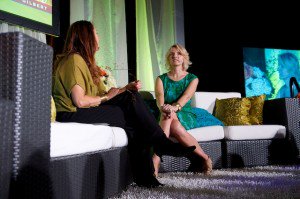 CP: There was a Harvard Business Review study where they compared male and female professionals, and whether it’s true or perceived, women scored lower in visioning. Everything else was equal or higher than the men. The only score that they didn’t meet and were actually below men was the ability to vision.
CP: There was a Harvard Business Review study where they compared male and female professionals, and whether it’s true or perceived, women scored lower in visioning. Everything else was equal or higher than the men. The only score that they didn’t meet and were actually below men was the ability to vision.
EG: The big, big picture. And I think another thing that is the danger of that is, of course, a little myopia and also perfectionism. I think that it was really important to me to write a novel about a women with a towering intellect, and I really didn’t want it to be a story about a woman who was brilliant but nobody would listen to her because she was a woman. I just felt like that was an oversimplification and also didn’t honor the real lives of the real, incredibly respected 19th-century female botanists who I studied as I was working on the book.
But what I do find—and this is a huge generalization but I think it’s a point worth making—that a lot of times what holds women back in the world is this idea that they can’t put something forward until it is perfect. And we all know that has never stopped men. [Laughs]
“…what holds women back in the world is this idea that they can’t put something forward until it is perfect. And we all know that has never stopped men.”
That’s the thing that I’m always trying to convey to younger women, to young artists, to young executives, to any woman I meet who’s entering the world at all. Don’t hold back your voice. Don’t hold back your ideas until they’re perfect because first of all, perfect doesn’t exist, and secondly, you’ll be overrun by people who are throwing out all sorts of stuff that’s half formed, and yours is 95 percent formed. You know, 95 percent’s good enough! Push it forward, put it out there.
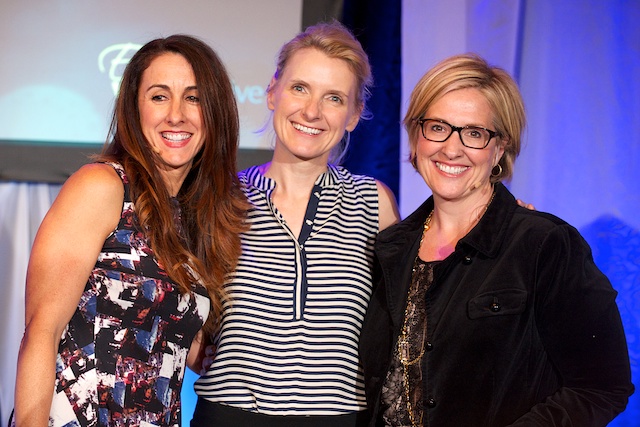 Alma suffers from that level of perfectionism. And I think it’s probably one of the terrific saving graces in my own life that I actually don’t have a problem. [Laughs] I grew up with a mother who taught me from me a really early age that done is better than good. That was one of her mottos I grew up with. “Just finish it, just put it out there. It doesn’t have to be immaculate, it just has to be done.”
Alma suffers from that level of perfectionism. And I think it’s probably one of the terrific saving graces in my own life that I actually don’t have a problem. [Laughs] I grew up with a mother who taught me from me a really early age that done is better than good. That was one of her mottos I grew up with. “Just finish it, just put it out there. It doesn’t have to be immaculate, it just has to be done.”
And I feel like that’s gotten me so far. That’s probably the reason I have six books instead of one. Otherwise I would still be editing that first one. I’m willing to throw stuff out there in the world. And I’m always trying to empower women to do the same.
“I’m willing to throw stuff out there in the world. And I’m always trying to empower women to do the same.”
To be continued… You can listen to the recorded version of this interview HERE
>>Like what you’re hearing? Join us for an experience that will last far beyond the four days we spend together. Learn more here>>>

